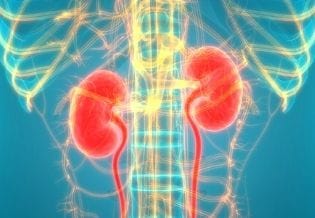Aim and Scope
Comprehensive coverage of kidney science and clinical nephrology.
Defining Excellence in Nephrology Publishing
Nephrology Advances publishes original research, reviews, and clinical studies spanning the complete spectrum of kidney medicine—from molecular mechanisms of renal disease to healthcare delivery innovations improving outcomes for patients with kidney disorders worldwide.
Our journal seeks to publish research that advances understanding of kidney function, disease mechanisms, and therapeutic interventions while maintaining clinical relevance for nephrologists caring for patients across diverse healthcare settings. We emphasize translational research that bridges laboratory discoveries with clinical applications, ensuring published work contributes meaningfully to the global effort to reduce kidney disease burden.
Nephrology Advances welcomes submissions addressing all aspects of kidney health and disease, including but not limited to the areas outlined below. We encourage interdisciplinary approaches combining nephrology with related specialties including cardiology, endocrinology, immunology, and oncology when such integration advances kidney medicine understanding.
Chronic Kidney Disease
- CKD progression and prevention strategies
- Biomarker discovery and early detection
- Cardiovascular complications in CKD
- Mineral and bone disorders management
- Quality of life and patient-reported outcomes
Acute Kidney Injury
- AKI pathophysiology and mechanisms
- Prevention strategies in high-risk settings
- Novel therapeutic interventions
- AKI-to-CKD transition prevention
- Critical care nephrology advances
Kidney Replacement Therapy
- Hemodialysis innovation and optimization
- Peritoneal dialysis research and outcomes
- Home dialysis expansion strategies
- Dialysis adequacy and quality metrics
- Vascular access innovations
Kidney Transplantation
- Immunosuppression optimization
- Living donor evaluation and outcomes
- Rejection prevention and treatment
- Long-term graft survival strategies
- Xenotransplantation and organ engineering
Glomerular Diseases
- Primary and secondary glomerulonephritis
- Podocyte biology and podocytopathies
- Diabetic kidney disease mechanisms
- Lupus nephritis management
- IgA nephropathy therapeutics
Pediatric Nephrology
- Congenital kidney anomalies
- Childhood glomerular diseases
- Growth in pediatric kidney disease
- Transition to adult care
- Pediatric dialysis and transplant
Hypertension & Electrolytes
- Renovascular hypertension
- Sodium and water balance
- Acid-base disorders
- Potassium homeostasis
- Renal tubular disorders
Emerging Topics: We actively seek research on artificial intelligence applications in nephrology, precision medicine approaches to kidney disease, health equity in kidney care access, palliative kidney care, and innovative care delivery models addressing the growing global burden of CKD.
Nephrology Advances accepts diverse manuscript formats enabling effective communication of kidney research findings:
Original Research
Full-length articles reporting novel findings from clinical trials, observational studies, laboratory investigations, or translational research in nephrology.
Reviews
Systematic reviews, meta-analyses, and narrative reviews synthesizing current evidence on important nephrology topics.
Case Reports
Detailed clinical cases demonstrating unusual presentations, diagnostic challenges, or novel therapeutic approaches in kidney disease.
Perspectives
Expert commentaries and opinion pieces on emerging nephrology topics, clinical controversies, and practice innovations.
Share Your Kidney Research
Submit your nephrology research and contribute to advancing kidney medicine globally.
Submit Manuscript

